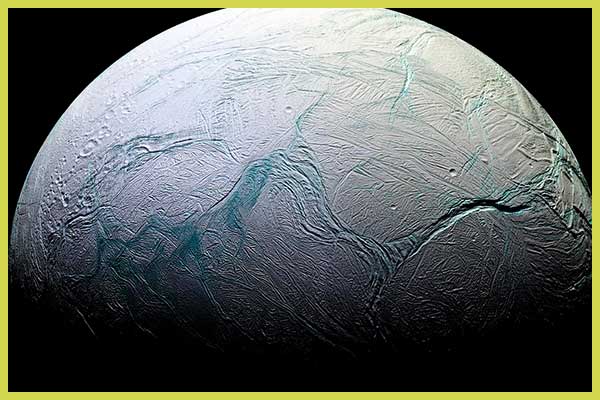Searching for life on Saturn's moon Enceladus
When it comes to searching for places beyond Earth where life could thrive in our solar system, some of the most interesting targets are not planets, but moons. From Jupiter's icy moons like Europa to Saturn's moon Enceladus, these places are thought to host oceans of liquid water beneath thick layers of ice that could potentially support life. Now, new evidence suggests support for Enceladus' habitability, So now the question arises How we might look for life on Searching for life on Saturn's moon Enceladus? and NASA is preparing missions to travel to these distant moons and look for evidence of life. Research on Enceladus, published in the journal PNAS, shows that the moon's ocean appears to have dissolved phosphorus, a key ingredient for life.
 |
| How we might look for life on Saturn's icy moon Enceladus. |
It is used in the creation of RNA and DNA, is found in cell membranes, and is found in bones and teeth within our bodies. By studying data from the Cassini probe, researchers were able to build a model of Enceladus' ocean and how minerals would dissolve in it. This reflects a change in approach to housing.
Now, an alternative approach is to look for oceans that could form below the surface on cold worlds and hold the ingredients needed for life.
ammonia, sulfur-containing compounds, as well as other elements to support life. including the chemical energy required." The researcher, Christopher Glenn of the Southwest Research Institute, said in a statement.
suggesting that phosphorus may be relatively abundant, Glenn says we need to revisit the site to learn more: "We need to go back to Enceladus to see if any The habitable ocean is truly inhabited."
Believe me, there is no one else like you.
One possible tool for doing this is NASA's program at the Jet Propulsion Laboratory. The Ocean Worlds Life Surveyor (OWLS) project has built a group of scientific instruments specifically for analyzing liquid samples, which would be ideally suited for researching ocean worlds like Enceladus. In order to access this water without drilling into the thick icy layer, one possibility would be to fly spacecraft through water droplets erupting from the lunar surface. "How do you take a snowball a billion miles from Earth and determine—you've got a chance, while everyone on Earth waits with bated breath—what life is? Is there any evidence? "Can we find life on Saturn's moon Enceladus?"

